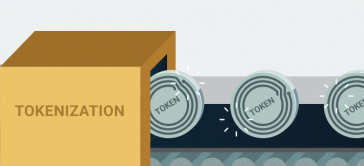Tokenization allows you to create communities that are not tied to any site or application.
Usually an online community is either a social networking group or a website. And in fact, community = website. Such a community is completely dependent on the functionality of the site and its developers. And if it is a group in a social network - the community can be blocked at the request of the owners of the site.
Tokenization allows the creation of communities that do not depend on any platform. To do this, the community initiator issues a limited number of community tokens, each of which gives the right to be part of the community and actually co-own it.
A community member can be identified by his or her crypto wallet. Due to the fact that the balance of such wallets is public - it is easy to determine whether its owner is a member of the community. If the balance has at least 1 community token - then the wallet owner is a community member.
Metamask and some other crypto wallets allow to authorize on third-party sites on behalf of their wallet address (this authorization method is also used on SocialHolders.com). And the site where a person is authorized can determine which communities the authorized user is a part of. Since the site sees the balance of all the tokens that are in the wallet.
This allows members of a tokenized community to authorize on any of the sites created for such communities. Participants are no longer tied to one site, but can easily identify each other online.
Community comes first
No IT skills are now required to create a large online community. It's enough to issue tokens based on a standard contract, and it takes no more than a couple of hours of programmer's work.
More important is the concept of the community and the roster of its members, the volume of which depends on the popularity of the community. The concept is usually not tied to any site, and the register of participants is stored in a blockchain. Such a register of participants is the most reliable and independent.
Such independence from sites is typical for famous bloggers. They can change the site of communication or simultaneously communicate on several sites. Their audience is tied to the blogger himself rather than to a particular platform. In the case of a large community, there is usually no such connection, so you have to tie it to the domain/site/application. Using social tokens allows you to decouple the community from the platforms and make the issued token an independent community base.
Use multiple venues
Any community member or third-party developer can create services for the community. Giving only community members access to them. And it's not hard to do with crypto wallets, as described above.
SocialHolders.com also has such sites for communities. And they can be enough to start a tokenized community.
A community can simultaneously use several platforms for different tasks. For example, services for communication, organizing meetings, voting. And also supplement them with services specific to the community (a catalog with travel routes for the community of travelers, for example). And all of them can be on different sites and be created by different people.
Combining data from services
On all services for tokenized communities, users have the same identifiers - these are their crypto wallet addresses. Therefore, knowing the identifier of a participant, it is easy to find him on all services.
An important requirement for all services that use a tokenized community is public data (Open Data). This means that the service has to make public all the data, which the participants of the community left on the site. To do this it must have an open API, which other developers can use to receive data from the service. With this approach sites don't own user and community data, but only provide a service to work with that data.
The openness of the data allows data from different community services to be combined and reused. The data of their profile in such a network can be filled by the participant only once. The rating of the participant can be calculated based on his activity on a variety of services. And the rating system itself can be a separate independent service.



